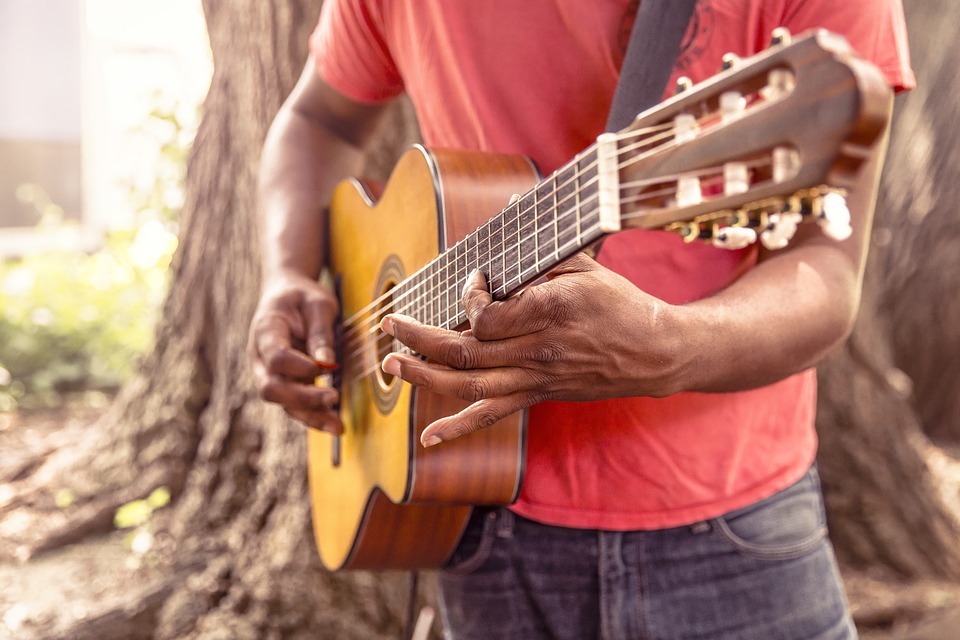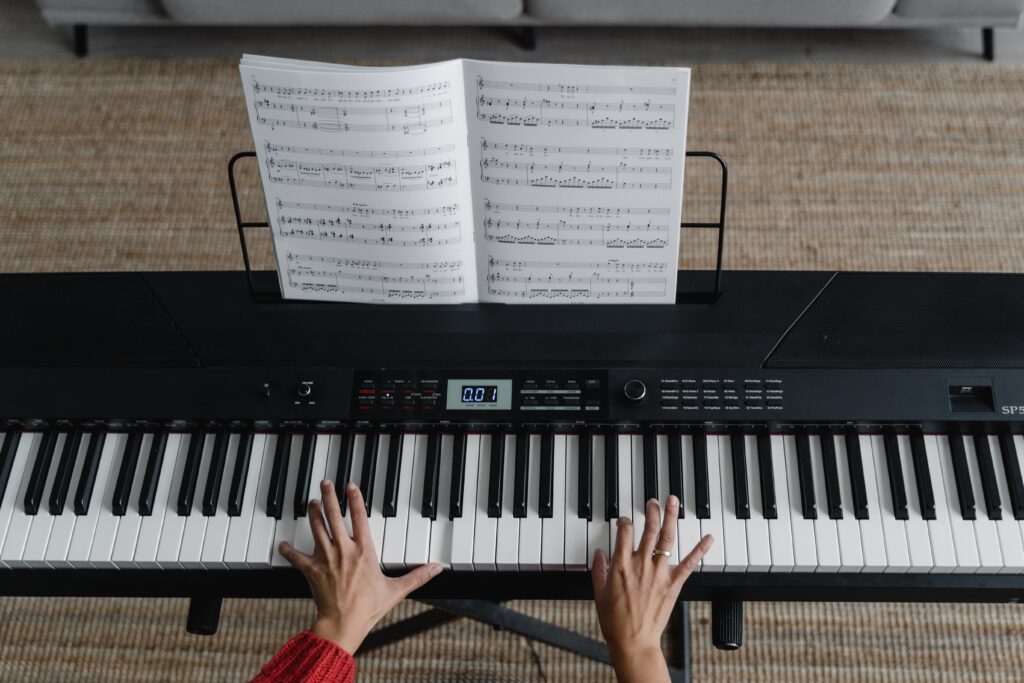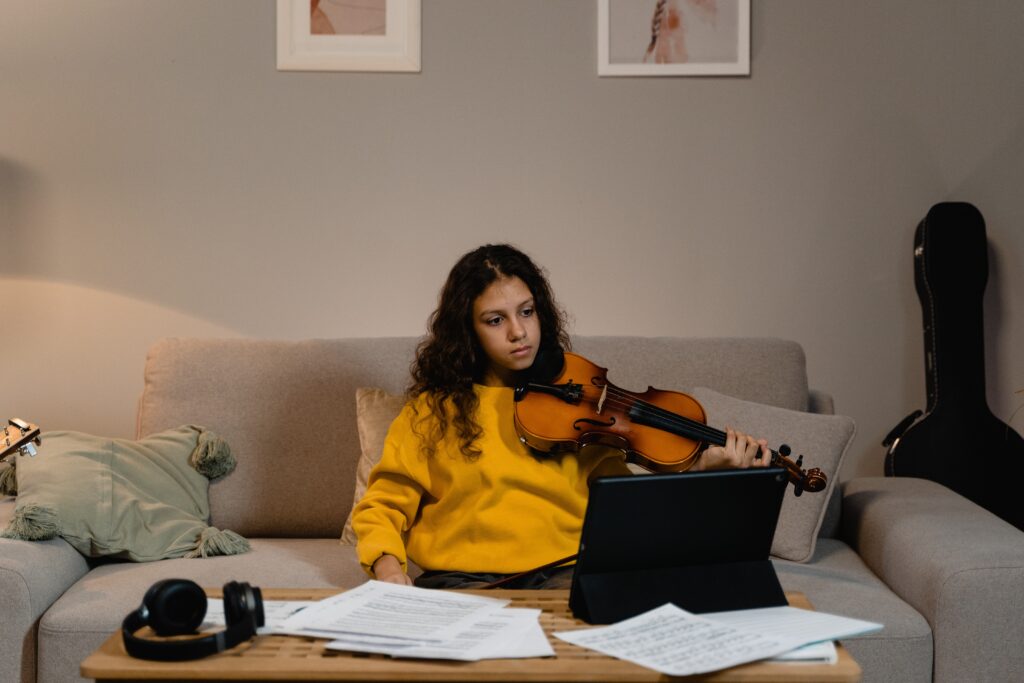Playing a musical instrument is a really wonderful hobby. It provides an opportunity to be creative, to enhance your coordination skills, and to have a lot of fun. People who play instruments have been shown to be mentally more astute, intellectually higher scoring, and emotionally happier and less stressed. You can check out Guitor Planet if you are looking to get an awesome guitar for yourself.
There are literally thousands of musical instruments from all around the world which makes the process of choosing which one to learn both exciting but also slightly overwhelming. Whilst there is no bad choice, selecting the right instrument will make it that little bit easier to get started, but even after that, you will need to decide on your method of learning. To help all the new music students who are feeling a little lost here is how to start learning your first musical instrument.
1. Choose Your Instrument
There are so many different instruments available to learn, all of which have their own joys and challenges. It can be difficult to choose with so many options, so one of the best ways to make the decision is to think about what kind of music you like. If you are into heavy metal, for example, then you may want to consider learning to play the electric guitar. If, on the other hand, you enjoy listening to classical music, then consider learning a more traditional instrument from the orchestra; narrow it down to which section you like the best, and then choose from there. No matter if you want to be a conga player or a guitarist, you can take online classes and master the instrument of your choice.
2. Identify a Learning Strategy
Learning an instrument is difficult and different people progress at different speeds. We have all seen the videos of child maestros who have already mastered their chosen instrument by the age of four, but for most of us, it is a gradual, challenging journey. The experts at the Sloan School of Music explain that one of the most important decisions you will need to make is what kind of learning strategy to implement. Some people choose to teach themselves by just playing the instrument and seeing how they can make different sounds. Other people choose to go down the route of traditional lessons to learn from an already experienced player. There is no right or wrong way; it is whatever works best for you,
3. Develop the Right Practice Habits
In order to progress at your chosen instrument, the most important thing is to practice at every opportunity. The practice habits which you develop at the start of your instrumental learning will stick with you throughout your life, so it is important that you create good habits to excel quickly. Set aside time each day for structured practice and then also try to pick up the instrument for a little free play and improvisation any time that you are free.
Here are some strategies that can make practicing more effective:
Warm Up
Playing a musical instrument isn’t something you can dive straight into. Like how athletes do warm-ups before practicing or undertaking games, you must also prepare yourself, stretch your body, get your blood flowing, and clear your mind. Instead of jumping into intense music training, begin with simple, smooth tunes and do everything at your own pace. Once you’re warmed up, you can now tackle more difficult pieces.
Keep a Journal
A journal is an excellent tool for taking important notes, monitoring progress, and keeping everything organized. If you don’t keep track of what you’ve been doing, it will be harder to measure how far you’ve already achieved in a specific period of time. Try to list down all the activities you’ve done, what you have achieved, and what’s there to improve on. It will be very handy in determining where to start in your future practice sessions.
Use a mirror
You can also try practicing in front of a mirror. Doing so can help elevate your music, as you can easily see your opportunities and learn from what you see. For instance, if you’re playing guitar, you can observe if your fingers are in a weird position or if you need to make some adjustments to your body posture. By correcting your form, it will be much easier to play, and it removes stress on your body, allowing you to practice more efficiently.
Practice daily
Learning a musical instrument requires routine and repetition. So, it’s best to practice daily, even for just half an hour. That way, you can develop brain and muscle memory and become more familiar with the instrument, which is something that will be more difficult to achieve if you’re only practicing once a week for two hours. Dividing your training hours into short everyday practice will allow you to monitor yourself better and make progress feel more fulfilling.
Record yourself
Thanks to the ceaseless advancement of technology, there are now many easy ways to record your practice sessions using your phone, tablet, laptop, or computer. You can capitalize on this by recording sessions and keeping track of your work. Listen to your recordings every now and then and look out for mistakes or areas of improvement. Through that, it will be easier for you to make changes and be better at playing.
4. Set realistic goals
Setting realistic goals is a fantastic source of motivation, which can fuel you to achieve anything in life. That includes learning a musical instrument, as you’ll have something to look forward to or be excited about. Just make sure to be specific and establish a timeline before working hard to get there.
For instance, if you want to play the piano, you can have the goal of playing your mom’s favorite song on her birthday coming in 4 months. Think of the happiness your mom can get and use it as a motivation to do better.
You may also have other defined goals, like being able to perform live in half a year, attending a specific number of music classes within a month, and many others. Stay reasonable with yourself, and have aims that are not too high or too low either.
5. Know the benefits
If you don’t have any concrete motivation yet, knowing the perks of learning a musical instrument can help give you a solid foundation and a good headstart in practicing. Some of these amazing benefits include boosting your cognitive ability, relieving stress, improving patience, and igniting creativity. Plus, it can also help widen your social circle by allowing you to connect with other music enthusiasts, build your confidence, and give you a sense of fulfillment, which all can have a massive positive impact on your life.
6. Take lessons or watch tutorial videos
Learning your first musical instrument can be a daunting task, especially since you’re starting from scratch. As such, it’s best to get all the help you need and learn from the masters instead of doing things yourself.
If your budget permits, you can take lessons from a good teacher to learn your chosen instrument more efficiently. Your teacher can guide you on the proper form, right steps, and best practices while steering clear of bad habits that can impede your progress.
Alternatively, you can watch tutorial videos online. You can find many different channels on YouTube that demonstrate how to play specific musical instruments. What’s great is that you can access these anytime and replay them whenever you want to get a better understanding of their techniques.
7. Pick the songs you like
Apart from starting with songs that are recommended for new learners, you should pick songs that you truly like. If not, you’ll find it hard to get some enthusiasm and make it an uphill battle learning how to play. During the initial stages, try to go for artists you love and find their easiest tracks. You’d be surprised how it is easier and faster to learn if you’re playing materials you like and not ones that make things seem like an obligation.
8. Don’t drain your enthusiasm
While lots of practice can do wonders in helping you learn a musical instrument quickly, don’t fall into the mistake of overextending yourself. Otherwise, the activity will start to become a negative experience. If you’re having a bad time, not in the mood, and nothing is clicking, take a break. If you’re practicing for a few hours and are already feeling tired, rest and come back the next day. There are times when pushing yourself hard is needed, but there are also times when you need to know your limits and pause. Don’t drain your enthusiasm. You can always start anew.
9. Join a group
Another great way to start learning your first musical instrument and get better at it is by joining a group. Though it can be intimidating to do so, look at the support you can get and how it will be much more enjoyable learning with other people. Experienced members can share the best techniques while you and the other beginners learn. Encourage one another, and have fun growing and making music together!
10. Ask for feedback
Lastly, don’t be afraid to show the pieces you have learned to your family and friends. Afterward, ask for their honest feedback. Often, it’s hard to evaluate one’s ability without personal bias. Your family and friends who care for you can honestly tell you both your good points and bad points. Who knows? There might even be areas you need to improve that you aren’t noticing but are apparent to your loved ones. Use all their valuable insights for your betterment.
Takeaway
Learning a musical instrument is so much fun and also helps you to develop new skills and abilities which you may not have even realized were related. Any instrument which you choose will provide so many benefits but it is still worth taking a little time to find the best instrument for you and develop the right learning and practice habits. Follow this guide and you will be all set for your new musical journey.




